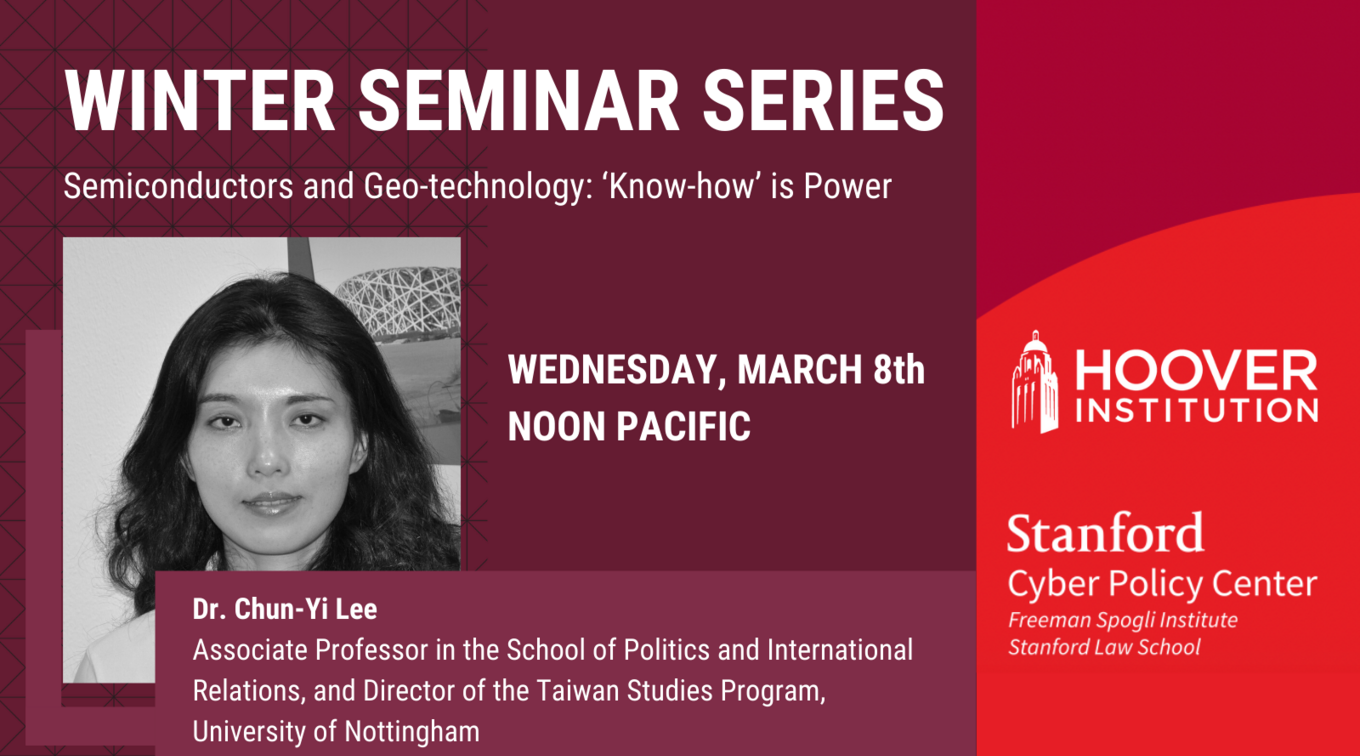Geopolitics is conventionally understood as a struggle for power. The focus of geopolitical analysis is typically on states; power is understood in terms of states’ economic and military strength. In the era of globalisation, production relies on complex supply chains. While this paper focuses on the production of a hi-tech product—semiconductors—it argues more generally that technology production and supply chain ‘know how’ is implicated in geopolitical power. Through an elaboration of the concept of ‘geo-technology’, this paper argues that a consideration of technology production capacity (or ‘know-how’) can enrich conventional understandings of geopolitics.
The US, Taiwan and China play different roles in the global semiconductor manufacturing supply chain. The leading semiconductor designers are based in the US, while the Taiwan Semiconductor Manufacturing Company (TSMC) produces most of the world’s high-end chips. China, on the other hand, is an economic and manufacturing powerhouse, but remains at the low end of the manufacturing supply chain. This paper argues that the US and Taiwan have significant leverage in the production of semiconductors, granting them geopolitical power. It therefore asks if Taiwan, and the US, can use their technological 'know-how’ to gain further leverage in the geopolitical tug of war with China. Data of this paper will come from semi-constructed interviews in Taiwan and Japan, approximately twenty elite interviews from technology policy analysts, policy makers and high-skilled engineers, along with relevant policy analyses. The paper aims to explore the link between human talents in the semiconductor supply chain and geopolitics.
This session is part of the Winter Seminar Series, a series spanning January through March, hosted at the Cyber Policy Center with the Program on Democracy and the Internet. Sessions are in-person and virtual, with in-person attendance offered to Stanford affiliates only. Lunch is provided for in-person attendance. Registration is required.
Dr. Chun-Yi Lee is Associate Professor in the School of Politics and International Relations, and Director of the Taiwan Studies Program, at the University of Nottingham. Her first book, Taiwanese Business or Chinese Security Asset?, was published by Routledge in 2011. She is currently working on her second monograph, on semiconductor manufacturing and geopolitics. She is editor in chief of the on-line academic magazine, Taiwan Insight, and co-editor of the ‘Taiwan and World Affairs’ book series with Palgrave.

 RSS Feed
RSS Feed
